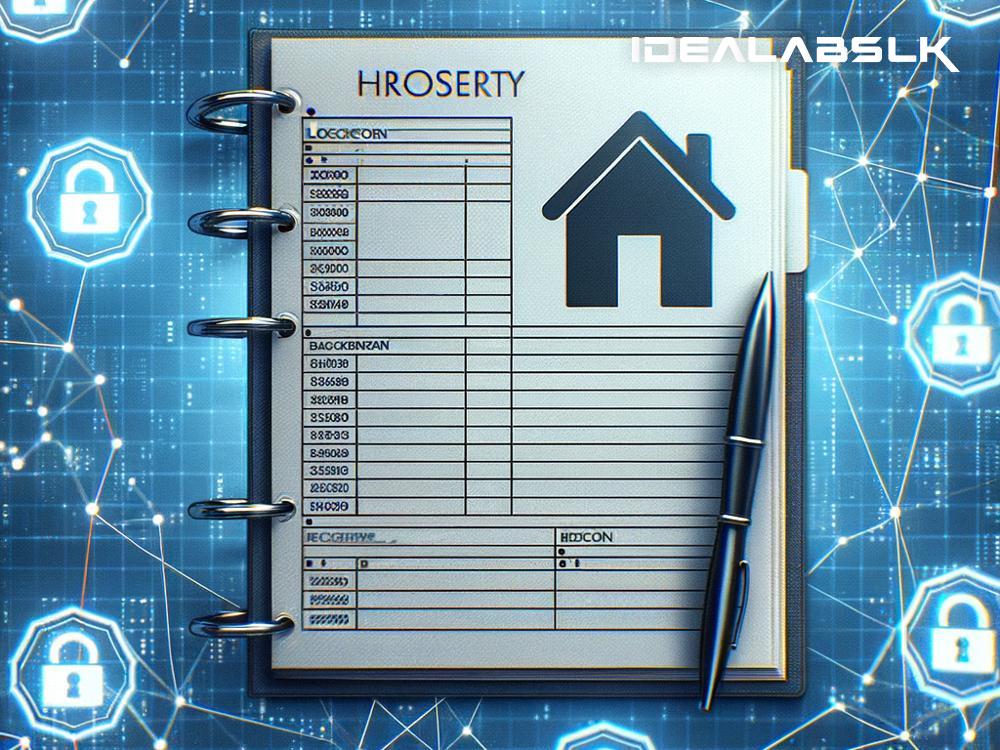Unlocking Security and Efficiency: Blockchain's Revolutionary Role in Real Estate Document Authentication
The real estate sector, with its maze of transactions, documents, and verifications, often feels like a complex puzzle. Each piece, from titles to contracts, must perfectly fit to secure ownership and safeguard against fraud. Here enters blockchain technology, an innovation that promises to transform this landscape with its brilliance in ensuring authenticity and efficiency. Let this simple exploration guide you through how blockchain is redefining document authentication in the real estate realm.
Understanding Blockchain: A Brief Overview
Imagine a digital ledger that is shared across a network of computers. This ledger records transactions in blocks, and once a block is filled, it's linked to the previous one, forming a chain – hence the name, blockchain. What makes it special? It’s the unparalleled security it offers, making documents tamper-proof and transparent. Think of it as a high-security vault where information is stored openly yet securely, accessible to authorized users in a manner that's immutable and traceable.
The Bumpy Road of Traditional Real Estate Documentation
Traditionally, real estate transactions involve a lot of paper-based documents - from property deeds to mortgage agreements. Not only is this process time-consuming, but it's also prone to errors and fraud. Forgeries of important documents can lead to legal battles, property disputes, and loss of money. Moreover, the process of verifying these documents' authenticity is cumbersome, often requiring a third-party authority.
Blockchain to the Rescue: Streamlining Authentication
Blockchain introduces a powerful solution to these challenges. By digitizing documents and storing them on a blockchain, they become incorruptible. Each document or transaction is verified by the network, drastically reducing the risks of fraud. But how exactly does this work in real estate? Let's delve deeper.
Immutable Records
Once a document is recorded on a blockchain, altering it becomes virtually impossible without the consensus of the network. This means that once a deed or a contract is on the blockchain, its authenticity is guaranteed. This immutable nature of blockchain makes it an excellent tool for preventing document tampering and falsification.
Streamlined Verification
Blockchain removes the need for middlemen in the verification process. Traditionally, verifying the authenticity of a real estate document could take days or even weeks. However, with blockchain, this verification is almost instantaneous. When documents are on the blockchain, stakeholders can directly access and verify information, making transactions faster and more efficient.
Increased Transparency
In a blockchain network, transactions are visible to all parties involved, ensuring a high level of transparency. This visibility helps build trust among parties, as everyone can see the transaction history and the document's authenticity. This feature is particularly useful in a sector like real estate, where transparency can often be a concern.
Empowering Security
The decentralized nature of blockchain means that data isn't stored in a single location but is spread across multiple nodes in the network. This not only makes it harder for hackers to compromise the system but also ensures that the data remains accessible even if part of the network goes down. For real estate documents, which are crucial and confidential, this adds an extra layer of security.
Smart Contracts: The Future of Real Estate Transactions
A fascinating application of blockchain in real estate is smart contracts. These are self-executing contracts with the terms of the agreement directly written into code. In real estate, smart contracts can automate various processes, including payments and document transfers, once certain conditions are met. This not only streamlines the process but also reduces the risk of fraud and disputes.
The Road Ahead
While the integration of blockchain in real estate is still in its infancy, its potential is undeniable. It promises to make transactions more secure, transparent, and efficient. However, for widespread adoption, challenges like regulatory acceptance and the digital divide must be addressed. But as technology evolves and more stakeholders recognize its benefits, blockchain could soon become the backbone of real estate transactions.
Conclusion: A New Era of Real Estate Documentation
Blockchain is not just a buzzword; it's a revolution in the making, especially for real estate document authentication. By ensuring that documents are secure, authentic, and easily verifiable, blockchain is paving the way for a more transparent, efficient, and trustworthy real estate sector. So, as we stand on the brink of this new era, one thing is clear: blockchain technology is set to redefine the landscape of real estate documentation, promising a future where transactions are seamless, secure, and straightforward.

